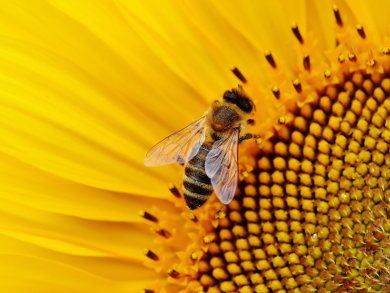The mite Varroa destructor is considered one of the biggest threats to the European honeybee. The blood-sucking parasite weakens bees and their larvae and also transmits pathogens. In extreme cases, mite infestation can completely eradicate a bee colony within one to three years. To combat Varroa mites, beekeepers have to treat beehives with aggressive organic acids or chemically-derived miticides that cause resistance problems and residues.
Bettina Ziegelmann, University of Hohenheim, Stuttgart, Germany, and colleagues have discovered a more effective and easier to use remedy by accident. While testing a genetic engineering method against the Varroa mite, in which mite-specific RNA snippets interfere with their gene activity and metabolism, the researchers found that a control experiment without the effective RNA snippets proved equally effective. Further analysis revealed that this sample contained lithium chloride. Lithium chloride surprisingly effectively ensures that the Varroa mites die off in the bees. It can be feed to bees dissolved in sugar water. So the application is uncomplicated and tolerable. In addition, lithium chloride is cheap.
According to the researchers, after more than 25 years of research, a new compound is available in the worldwide fight against the Varroa mite. However, before lithium chloride can be marketed as a drug for bees, further testing is needed to determine the best dosage and to eliminate side effects for bees and users, as well as the risk of residues.
- Lithium chloride effectively kills the honey bee parasite Varroa destructor by a systemic mode of action,
Bettina Ziegelmann, Elisabeth Abele, Stefan Hannus, Michaela Beitzinger, Stefan Berg, Peter Rosenkranz,
Sci. Rep. 2018.
https://doi.org/10.1038/s41598-017-19137-5




